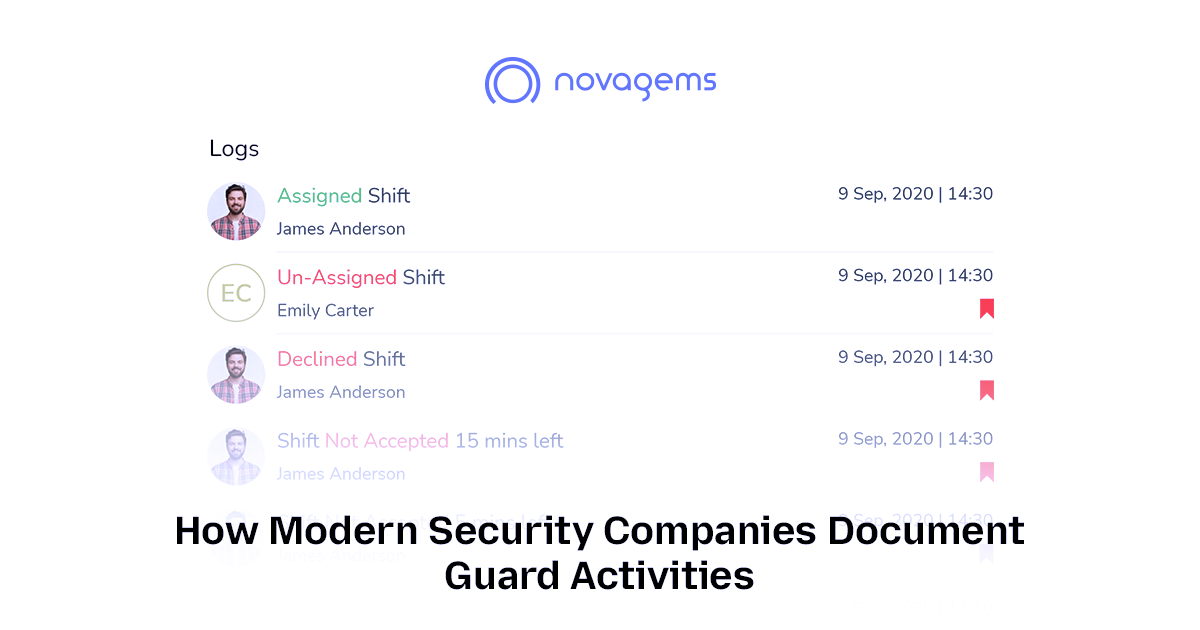Unlocking Success: Essential Workforce Management Skills You Need To Master
Sun, Jun 11, 2023
Read in 11 minutes
These workforce management skills will not only help you in strategic planning but also help you grow your career in the field. Whether you’re an HR professional or a business leader, to manage your people, you need to learn this.

Key Takeaways
- Managing a remote workforce in 2025 demands more than just shift allocation—it requires intelligence, empathy, and adaptability.
- Critical workforce management skills include smart scheduling, data-based decision-making, employee engagement, and communication.
- Trends like AI tools, gig work, and hybrid models are shaping the future of WFM.
- Strong management leads to higher team productivity, better morale, and smoother operations.
What is workforce management?
Workforce management (WFM) is the strategy behind organizing, scheduling, and monitoring employees. It includes time tracking, performance reporting, compliance management, leave planning, and more.
From managing cleaning crews to overseeing large remote workforce teams in retail or healthcare, WFM ensures the right people are in the right roles at the right time. Effective workforce management skills are what transform basic operations into a high-performing team structure.
Why Workforce Management Skills Matter
The landscape of work has changed. Managers today are not only expected to build rosters—they must lead with purpose and precision. Whether dealing with a hybrid workforce or staff in multiple time zones, your ability to manage people efficiently impacts every corner of your business.
Managers are now responsible for:
- Reducing overtime and shift conflicts
- Maximizing team productivity
- Ensuring labor compliance
- Improving employee engagement
- Adapting fast using digital and AI tools
Without mastering key workforce management skills, even the best software won’t drive results. What matters is how effectively those tools are used and integrated into daily operations.
Workforce managers are the one who are responsible for the day to day operations of the employees. They have many responsibilities from onboarding to relieving the employees of their duties. They need to have a strong grasp of human resources so that they can communicate better with the workforce. Before deciding to make a career as a workforce manager you need to make sure that you have acquired the required skills that are needed to it. Then you can do your proper research and make an informed decision.
Workforce managers are the one who are responsible for the day to day operations of the employees. They have many responsibilities from onboarding to relieving the employees of their duties. They need to have a strong grasp of human resources so that they can communicate better with the workforce. Before deciding to make a career as a workforce manager you need to make sure that you have acquired the required skills that are needed to it. Then you can do your proper research and make an informed decision.
12 Essential Workforce Management Skills You Need to Master
1. Smart Scheduling and Forecasting
Scheduling is the backbone of workforce management. But it’s no longer about filling out a spreadsheet. Today, it’s about optimizing hours based on workload, employee availability, and compliance rules.
To excel at scheduling:
- Forecast staff demand using data trends
- Adjust schedules quickly for absences or changes
- Balance workloads to prevent burnout
- Use AI tools to automate recurring shift patterns
Effective shift optimization can reduce labor costs, improve service delivery, and give employees more control over their time, directly boosting employee engagement.
2. Time Tracking and Attendance Oversight
Accurate time tracking is vital in managing labor costs and ensuring payroll accuracy. Manual timesheets are outdated and error-prone.
Modern time tracking includes:
- GPS-based mobile check-ins for field workers
- Real-time alerts for missed or late punches
- Monitoring breaks and overtime
- Integration with payroll systems
When supported by proper tools, time tracking gives managers reliable data to drive informed decisions and ensures fairness across the board.
3. Communication and Feedback Skills
Clear communication is at the heart of effective team productivity. Miscommunication leads to missed shifts, incomplete tasks, and low morale.
Strong communication includes:
- Real-time updates through apps or dashboards
- Scheduled team huddles or weekly check-ins
- Constructive feedback and recognition
- Open channels for staff to share input
Two-way communication also helps with employee engagement, showing staff that their feedback is valued and acted upon. WFM professionals must possess excellent communication skills to effectively collaborate with different stakeholders, including managers, team members, and employees. Clear and concise communication ensures that expectations are understood, schedules are communicated accurately, and changes are effectively managed. Strong interpersonal skills, active listening, and the ability to resolve conflicts are vital for successful communication and collaboration within the workforce.
As a manager, you need to clearly convey your expectations, provide feedback, and listen to your employees’ concerns.
- Active listening: Pay attention to your employees’ inputs.
- Clear instructions: Ensure your directions are easy to understand.
- Feedback: Provide constructive feedback regularly.
Strong communication skills help you build trust amongst your employees and customers. Once you learn how to communicate clearly and precisely, you can easily convey the desired information without any error. Gallup research shows that employees who feel heard are 4.6x more likely to perform at their best.
4. Training and Upskilling
In 2025, managers aren’t just supervisors—they’re coaches. One of the most overlooked workforce management skills is the ability to teach and grow your team.
Start with:
- Short training modules on new WFM tools
- Role-specific learning paths
- Peer coaching systems
- Cross-training staff for flexibility
Continuous learning helps retain top talent, improves morale, and prepares your remote workforce or hybrid teams for unexpected changes.
5. Data-Driven Decision Making
Modern WFM relies heavily on analytics. Whether it’s performance reporting or tracking absenteeism, using data helps reduce guesswork.
Track metrics like:
- Daily attendance and tardiness rates
- Labor cost vs revenue
- Productivity by shift or team
- Feedback trends from surveys
With the right tools, these insights help you reduce waste, reallocate resources, and improve shift optimization—ultimately enhancing team productivity.
6. Employee Engagement and Morale Building
People stay where they feel appreciated. An engaged workforce leads to fewer absences, higher performance, and lower turnover.
Boost employee engagement by:
- Allowing shift input and preferences
- Recognizing consistent performers
- Offering transparent policies and fair treatment
- Hosting informal check-ins or well-being surveys
Great WFM isn’t just technical—it’s human. Engagement directly impacts output, cooperation, and innovation.
7. Conflict Resolution
Whether it’s disputes over shifts or policy misunderstandings, workplace conflicts must be managed quickly and fairly.
A good manager:
- Listens carefully and impartially
- Document concerns and resolutions
- Stays calm and solution-focused
- Applies company policy consistently
Strong conflict resolution ensures a healthy team environment, minimizes disruption, and builds trust.
8. Tech Proficiency
With cloud-based dashboards and mobile apps becoming the norm, managers must be fluent in using WFM technology.
Modern tools offer:
- Drag-and-drop scheduling
- Real-time time-off requests
- Alerts for coverage gaps
- Dashboards for performance reporting
Being comfortable with these AI tools means fewer delays, better planning, and easier access to information. It also empowers your team to self-serve and stay informed. As technology plays an increasingly important role in WFM, proficiency in relevant technical tools and software is essential. WFM professionals should be adept at using workforce management systems, scheduling software, time tracking tools, and other related applications. The ability to navigate these systems efficiently, analyze data, and generate reports is crucial for optimizing workforce performance and making data-backed decisions.
In today’s digital age, being proficient with workforce management software and other technological tools is essential. This has become one of the most important workforce management skills that an employee needs to have.
- Software skills: Familiarity with workforce management software.
- Data analysis: Use data to make informed decisions.
- Automation: Utilize technology to streamline processes.
If the managers have acquired these technical skills, then they can make decisions like when to set up a training program easily. They can also identify the areas where the workforce needs to improve to increase the overall productivity of the organization.
9. Adaptability and Leadership
If the last few years taught us anything, it’s that change is constant. Businesses that succeed are those with leaders who adapt.
Great leaders:
- Remain calm under pressure
- Make fast, data-informed decisions
- Inspire and reassure their team
- Embrace change rather than fear it
Whether you’re dealing with a system outage, a last-minute staff call-out, or shifting client needs, your leadership sets the tone. Adaptable managers guide both operations and people through uncertainty. The WFM landscape is dynamic, with frequent changes in customer demands, business requirements, and workforce availability. WFM professionals must be flexible and adaptable to handle unforeseen challenges and adjust schedules accordingly. This includes the ability to quickly adapt to changes, reallocate resources efficiently, and make necessary adjustments to meet changing demands. A flexible mindset enables WFM professionals to manage unexpected situations and maintain productivity levels.
The ability to adapt to changing situations and handle unexpected challenges is vital in workforce management.
- Adaptability: Be open to change and willing to adjust plans.
- Resilience: Stay calm and composed under pressure.
- Continuous learning: Always seek to improve your skills and knowledge.
As a workforce manager, your priorities and responsibilities are constantly changing. And sometimes you will need to think on the spot and make rapid decisions so that the smooth running of the business is not affected. Suppose some employee has requested an urgent leave of absence, then you will need to find a replacement for the same.
10. Strong Analytical Abilities:
One of the fundamental skills for WFM professionals is strong analytical abilities. This includes the capability to interpret data, identify patterns and trends, and make data-driven decisions. Proficiency in using analytical tools and software can help in forecasting workload, determining staffing requirements, and analyzing performance metrics. By leveraging data and analytics, WFM professionals can make informed decisions that optimize workforce planning and resource allocation.
Challenges are inevitable in any workplace. Being a good problem-solver means you can quickly identify issues and come up with effective solutions. And many companies like that their employees have this wfm qualifications.
- Analytical thinking: Assess the situation and understand the root cause.
- Creativity: Think outside the box for innovative solutions.
- Decisiveness: Make informed decisions swiftly.
Workforce managers need to make decisions on a daily basis. These decisions range from allocating resources, scheduling meetings with clients, or overseeing a project. Workforce management professionals can only make sound and well-informed decisions if they have all of the required data at hand.
11. Time Management and Prioritization:
Effective time management and prioritization skills are vital for WFM professionals. They must handle multiple tasks simultaneously, such as scheduling, forecasting, monitoring, and reporting. Prioritizing activities based on urgency and importance ensures that critical tasks are addressed promptly. Utilizing time management techniques and tools can help WFM professionals stay organized, meet deadlines, and optimize their productivity.
Time management is crucial for meeting deadlines and ensuring tasks are completed efficiently. As a manager or team player, you real workforce management skills are shown here. Since you have to oversee the operations, handle the team, and complete your tasks as well. It involves planning, prioritizing tasks, and delegating effectively.
- Prioritization: Focus on high-impact tasks.
- Delegation: Assign tasks to the right people based on their skills.
- Scheduling: Create a realistic timeline for project completion.
As a workforce manager, your time management skills need to be top-notch as you are handling multiple tasks and operations at the same time. You need to make sure that the projects are being completed on time and the employees are doing their jobs also on time. Plus, you might have your own tasks as well. You need to set your priorities straight and ensure that everything is done in a timely manner.
12. Continuous Learning and Adaptation:
The field of WFM is continually evolving, driven by advancements in technology, industry trends, and changing workforce dynamics. Successful WFM professionals understand the importance of continuous learning and adaptability. They stay updated with industry developments, attend relevant training programs, and seek opportunities to enhance their skills. Embracing new technologies and best practices allows them to optimize workforce management strategies and stay ahead in a competitive landscape.
New Trends That Are Reshaping Workforce Management
WFM trends 2025 are focused on flexibility, personalization, and smarter decision-making. As businesses evolve, so must the way they manage people.
AI-Powered Scheduling
AI tools now assist with predicting workforce needs, suggesting ideal shift patterns, and identifying scheduling conflicts. This reduces manual work and leads to smarter, faster decisions.
Rise of the Remote Workforce
Managing a remote workforce requires trust, accountability, and visibility. WFM platforms now support remote check-ins, virtual performance evaluations, and asynchronous communication.
Focus on Employee Well-being
Companies are investing in tools and practices that protect mental health and promote work-life balance. This includes flexible shifts, optional wellness days, and morale-building initiatives.
Growing Gig Economy
Managing gig workers means tracking irregular hours, ensuring compliance, and paying on-demand. Tools that support freelance and part-time staff are now a key part of the WFM tech stack.
DEI Integration
Modern workforce management must prioritize fair shift allocation, inclusive training, and accessibility for all employees. Equity isn’t optional—it’s a core requirement for a sustainable team.
Final Thoughts
Workforce management in 2025 is no longer just about who works when. It’s about managing people, performance, and potential through the right mix of workforce management skills, technology, and leadership.
From accurate time tracking to meaningful employee engagement, every skill plays a role in building a better, more resilient team. As your team grows or your industry evolves, mastering these essentials will position you ahead of the curve.
Whether you’re leading a crew of ten or coordinating a multi-site operation, focusing on human-first management with smart use of AI tools and data will unlock greater efficiency, happiness, and long-term success.
Get a Free Trial
Sign up For Newsletter
Latest Blog Posts
Get Started
Start being productive & grow your business
with Novagems





